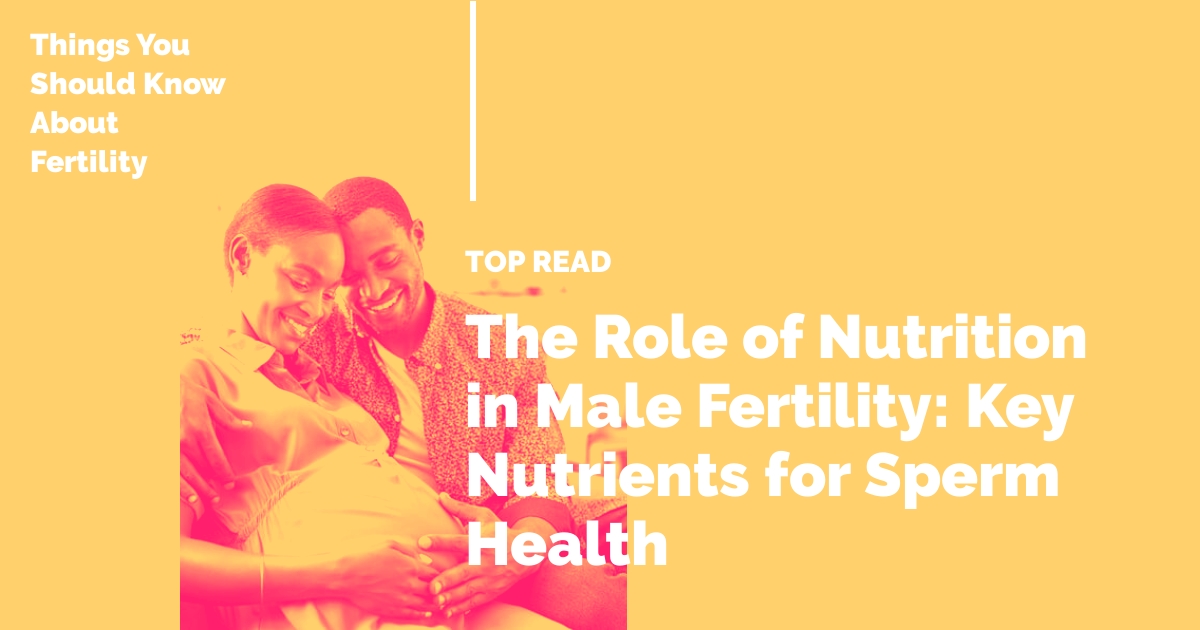The role of nutrition in male fertility is often overlooked, but it plays a vital role in sperm production, function, and overall reproductive health.
A balanced diet rich in key nutrients can help improve sperm quality and increase the chances of conception.
This article explores the essential nutrients for sperm health and provides practical dietary tips for optimizing male fertility.
Key Nutrients for Sperm Health
Adequate intake of specific nutrients is crucial for optimal sperm production and function.
Some of the most important nutrients for male fertility include:
1. Antioxidants
Oxidative stress caused by free radicals can damage sperm cells and impair their function.
Antioxidants help neutralize free radicals, protecting sperm cells from damage.
Key antioxidants for male fertility include vitamin C, vitamin E, and selenium.
2. Zinc
Zinc is essential for sperm production, function, and DNA synthesis.
Studies have shown that zinc deficiency can lead to reduced sperm count and impaired sperm motility.
3. Folate
Folate, also known as vitamin B9, is necessary for DNA synthesis and cell division.
Adequate folate levels are important for sperm health, and deficiencies may be associated with poor sperm quality.
4. Vitamin D
Vitamin D is involved in calcium regulation and may play a role in sperm function.
Studies have found that men with sufficient vitamin D levels tend to have better sperm motility and morphology compared to those with deficiencies.
5. Omega-3 Fatty Acids
Omega-3 fatty acids, particularly DHA and EPA, are essential for sperm membrane structure and function.
Adequate intake of omega-3s may improve sperm motility and overall fertility.
Dietary Tips for Male Fertility
To optimize nutrition for male fertility, consider incorporating the following dietary tips:
1. Prioritize Whole Foods
Choose whole, unprocessed foods over processed or packaged products.
Whole foods are naturally richer in essential nutrients and antioxidants, providing the building blocks for sperm health.
2. Eat a Variety of Fruits and Vegetables
Fruits and vegetables are rich in antioxidants, vitamins, and minerals.
Aim for at least five servings of fruits and vegetables daily, and opt for a wide variety of colors and types to ensure a balanced nutrient intake.
3. Include Healthy Fats
Incorporate healthy fats, such as omega-3 fatty acids from fatty fish (e.g., salmon, mackerel), nuts, seeds, and olive oil.
These fats are essential for sperm membrane function and overall reproductive health.
4. Consume Lean Protein Sources
Opt for lean protein sources, such as poultry, fish, legumes, and low-fat dairy products.
These foods provide essential amino acids and minerals, like zinc, needed for sperm production.
5. Limit Saturated and Trans Fats
Excessive intake of saturated and trans fats can negatively impact sperm health.
Limit consumption of high-fat meats, processed foods, and fried items.
Frequently Asked Questions (FAQs)
Can dietary supplements improve sperm health?
Dietary supplements may help improve sperm health in cases where specific nutrient deficiencies are identified. It isimportant to consult with a healthcare provider before starting any dietary supplement, as excessive intake of some nutrients can be harmful.
How long does it take for dietary changes to impact sperm health?
Sperm production takes approximately 74 days. Therefore, it may take up to three months to see significant improvements in sperm health following dietary changes. However, maintaining a healthy diet is crucial for long-term reproductive health.
Can lifestyle factors also influence male fertility?
Yes, lifestyle factors such as maintaining a healthy weight, managing stress, getting regular exercise, avoiding smoking, and limiting alcohol consumption can all positively impact male fertility.
Conclusion
Nutrition plays a significant role in male fertility, and a balanced diet rich in essential nutrients is crucial for optimal sperm health.
By prioritizing whole foods, consuming a variety of fruits and vegetables, incorporating healthy fats, and limiting saturated and trans fats, men can support their reproductive health and improve their chances of conception.
Always consult with a healthcare provider before making significant dietary changes or starting any dietary supplements.
References, Studies & Sources:
- American Society for Reproductive Medicine. (2012). Optimizing Male Fertility. https://www.asrm.org/globalassets/asrm/asrm-content/news-and-publications/practice-guidelines/for-non-members/optimizing_natural_fertility.pdf
- Gaskins, A. J., & Chavarro, J. E. (2018). Diet and fertility: a review. American Journal of Obstetrics and Gynecology, 218(4), 379-389. doi: 10.1016/j.ajog.2017.08.010
- Salas-Huetos, A., Bulló, M., & Salas-Salvadó, J. (2017). Dietary patterns, foods and nutrients in male fertility parameters and fecundability: a systematic review of observational studies. Human Reproduction Update, 23(4), 371-389. https://pubmed.ncbi.nlm.nih.gov/28844822/
- Showell, M. G., Mackenzie-Proctor, R., Brown, J., Yazdani, A., Stankiewicz, M. T., & Hart, R. J. (2014). Antioxidants for male subfertility. Cochrane Database of Systematic Reviews, (12), CD007411. https://pubmed.ncbi.nlm.nih.gov/25504418/

Owner, entrepreneur, and health enthusiast.
Chris is one of the Co-Founders of PregnancyResource.org. An entrepreneur at heart, Chris has been building and writing in consumer health for over 11 years. In addition to PregnancyResrouce.org, Chris and his Acme Health LLC Brand Team own and operate Diabetic.org, Pharmacists.org, and the USA Rx Pharmacy Discount Card powered by Pharmacists.org.
Chris has a CFA (Chartered Financial Analyst) designation and is a proud member of the American Medical Writer’s Association (AMWA), the International Society for Medical Publication Professionals (ISMPP), the National Association of Science Writers (NASW), the Council of Science Editors, the Author’s Guild, and the Editorial Freelance Association (EFA).
Our growing team of healthcare experts work everyday to create accurate and informative health content in addition to the keeping you up to date on the latest news and research.

